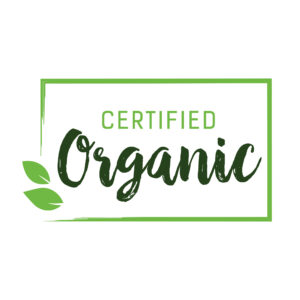With the increasing awareness of climate change worldwide and the rise of new and chronic diseases, more people are turning to alternative and natural healthcare methods to assist in long-term health management. With the introduction and expansion of natural-based products, various categories are also developing in this field.
Currently, there is a wide variety of plant-based, natural, organic, and other products available in the market. One common question people often ask is the difference between natural herbs and organic. These two categories can easily be confused, as many people incorrectly use these terms interchangeably, leading to overlapping meanings. However, legally, there is a distinction between these two definitions.
difference between natural herbs and organic
To know the differences between organic and natural products, you must first know what these products are .

natural herbs
Currently, there is a high demand for natural herbs in the cosmetic industry. These products are mainly made from natural ingredients and have powerful nourishing properties. They are formulated without the use of harsh or toxic chemicals such as petroleum, sulfates, silicones, parabens, or mineral oils. Additionally, these natural beauty products are environmentally friendly and free from preservatives, synthetic fragrances, or additives. They are safe and effective for regular use and are also vegan and cruelty-free. However, other chemical substances like pesticides and chemical fertilizers are often used to enhance the growth of these natural ingredients.
Characteristics of natural herbs:
- Made of mineral and natural materials
- No preservative
- Use of chemical fertilizers and pesticides
benefits of using natural herbs
1. Reduced side effects: Many natural herbs have minimal side effects compared to synthetic medications. They are often well-tolerated by the body and do not cause the same level of adverse reactions.
2. Treatment of various health conditions: Natural herbs have been used for centuries to address a range of health conditions. Some herbs, such as ginger and turmeric, have anti-inflammatory properties that can help with conditions like arthritis. Others, such as chamomile, can promote relaxation and ease anxiety.
3. Improved overall wellness: Natural herbs can support overall health and wellness. They are rich in vitamins, minerals, and antioxidants, which can help boost the immune system, improve digestion, and decrease the risk of chronic diseases.
4. Sustainable and eco-friendly: Herbs are generally sustainable to grow, as they require minimal resources and can be cultivated without harming the environment. They can also be easily grown in home gardens, reducing the need for transportation and packaging.
5. Accessible and affordable: Natural herbs are often readily available and can be more affordable compared to prescription medications. Additionally, they can be easily incorporated into daily routines through cooking, teas, or supplements.

organic herbs
Organic products refer to products that are made entirely from natural ingredients and are produced without the use of any chemicals or additives. These products do not employ any methods during their production that may alter the natural nature of their constituent materials.
Organic products are produced locally and sustainably, and the emphasis on quality and health is crucial for consumers. The use of organic products not only contributes to improving the overall health of society but also helps to preserve the environment from damage and pollution caused by chemicals.
While the mass production of organic products does present its own challenges, the demand for these products continues to increase steadily due to their numerous benefits.
Characteristics of organic herb :
- Made of completely natural materials
- Free of any harmful chemicals, pesticides, artificial colors, preservatives
- Compost is added to the soil
benefits of using organic herb
1. Health benefits: Organic herbs are grown without the use of synthetic pesticides, herbicides, and fertilizers, which means they are free from harmful chemicals. This makes them a healthier option compared to conventionally grown herbs.
2. Nutritional value: Organic herbs are often found to have a higher nutrient content compared to non-organic ones. This is because organic farming practices tend to focus on soil health and natural methods of enhancing nutrient levels in the soil, leading to more nutrient-dense herbs.
3. Environmental impact: Organic herb farming promotes sustainable agricultural practices by avoiding the use of synthetic chemicals that could harm the environment. It helps preserve soil biodiversity, reduces water pollution, and supports the overall health of ecosystems.
4. Better taste and aroma: Many people often find that organic herbs have a more vibrant and intense flavor compared to their non-organic counterparts. This is because they are grown in healthier soil conditions and are not sprayed with synthetic chemicals that can interfere with the natural taste and aroma.
5. Supporting local farmers: By purchasing organic herbs, you are supporting local farmers who choose to grow herbs using sustainable and environmentally friendly practices. This helps to strengthen local economies and encourage the growth of organic farming.
6. Reduced risk of allergies and sensitivities: Organic herbs are less likely to trigger allergies or sensitivities due to the absence of synthetic pesticides and herbicides. This makes them a safer option for those with sensitivities or allergies to chemicals commonly used in conventional agriculture.
7. No genetically modified organisms (GMOs): Organic herb are not genetically modified, ensuring that you are consuming herbs in their natural form without any genetically engineered alterations.
8. Fewer residues: Non-organic herbs may contain pesticide residues, even after washing. Organic herb, on the other hand, are grown without the use of synthetic pesticides, minimizing the risk of residue exposure.
In conclusion, natural herbs and organic herbs have some similarities but also distinct differences. Natural herbs are made from natural ingredients and may contain some chemical fertilizers or pesticides. They are formulated without harsh or toxic chemicals and are environmentally friendly. On the other hand, organic herb are made entirely from natural materials and are produced without the use of any chemicals or additives. They are grown sustainably and without synthetic pesticides or herbicides.
Both natural and organic herbs offer numerous benefits, including reduced side effects, treatment of various health conditions, improved overall wellness, sustainability, accessibility, and affordability. However, organic herbs have additional advantages such as health benefits, higher nutritional value, positive environmental impact, better taste and aroma, support for local farmers, reduced risk of allergies and sensitivities, absence of GMOs, and fewer pesticide residues.
Ultimately, the choice between natural herbs and organic herb depends on personal preferences and priorities. Both options can contribute to a healthier lifestyle and support sustainable and environmentally friendly practices.
In conclusion, natural herbs and organic herbs have some similarities but also distinct differences. Natural herbs are made from natural ingredients and may contain some chemical fertilizers or pesticides. They are formulated without harsh or toxic chemicals and are environmentally friendly. On the other hand, organic herbs are made entirely from natural materials and are produced without the use of any chemicals or additives. They are grown sustainably and without synthetic pesticides or herbicides.
Both natural and organic herbs offer numerous benefits, including reduced side effects, treatment of various health conditions, improved overall wellness, sustainability, accessibility, and affordability. However, organic herbs have additional advantages such as health benefits, higher nutritional value, positive environmental impact, better taste and aroma, support for local farmers, reduced risk of allergies and sensitivities, absence of GMOs, and fewer pesticide residues.
Ultimately, the choice between natural herbs and organic herbs depends on personal preferences and priorities. Both options can contribute to a healthier lifestyle and support sustainable and environmentally friendly practices.
mrtfoods
We are proud to announce that MRT Company operates in the field of organic product manufacturing. Our commitment to producing healthy and high-quality products is evident through our process that excludes the use of any pesticides or chemical fertilizers, and follows the principles of organic farming. Our aim is to provide our valued customers with products that not only prioritize their own and their families’ health, but also contribute to environmental preservation and support sustainable agriculture by adhering to high standards and organic criteria.
Reference





